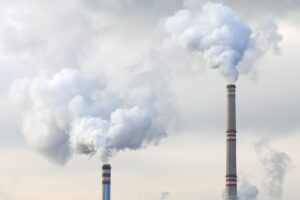THE Department of Energy (DoE) said it is studying the impact of shutting down coal mines and coal-fired power plants as the Philippines transitions to cleaner fuels for power generation.
On the sidelines of the Philippine Energy Transition Dialogue 2025 on Wednesday, Michael O. Sinocruz, director of the DoE’s Energy Policy and Planning office, said the United Nations Office for Project Services (UNOPS) has been tapped to help study the effects on the coal industry and the segment of the power industry that depends on coal.
UNOPS is an arm of the UN that provides infrastructure, procurement and project management services.
“We need to study the impact if we’re going to close down our coal mines and coal-fired power plants,” Mr. Sinocruz said at an event hosted by the Clean, Affordable, and Secure Energy for Southeast Asia organization.
Mr. Sinocruz said of particular interest is the livelihoods of workers and communities dependent on coal mining operations.
“Part of the study should (estimate) how much funding we need to protect this possible displacement of workers and even the livelihood of the community,” he said.
The global commitment to accelerate the transition to cleaner energy and decarbonization means winding down coal-fired power, with a knock-on effect on mining coal.
Mr. Sinocruz said the study could begin next year.
“Based on this study, we can have recommended policies for consideration by the Department of Energy or by the National Government, providing alternatives for those that will be affected by this transition,” he said.
The Philippines is a major importer of coal, shipping in more than 80% of its requirements in 2023.
Coal-fired power plants currently account for 62.5% of the power generation mix, while renewable energy accounts for 22.2%.
The goal is to increase the share of renewable energy to 35% by 2030 and 50% by 2040.
Semirara Mining and Power Corp., the largest coal producer in the Philippines, has said that it hopes the transition will be managed properly.
“For now, coal remains the backbone of our baseload supply, ensuring affordable and reliable electricity. Any move to phase it out will need careful study, timing and planning to ensure energy security and protect livelihoods,” the company said in a statement.
“We trust that the transition will be managed in a way that balances sustainability with the country’s energy and economic needs,” it added. — Sheldeen Joy Talavera
